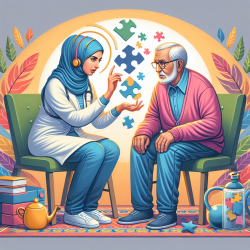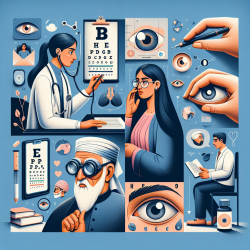The COVID-19 pandemic has dramatically impacted healthcare systems globally, with a significant effect on sexual and reproductive health (SRH) services. The research article titled "Safeguarding gains in the sexual and reproductive health and AIDS response amidst COVID-19: The role of African civil society" provides invaluable insights that can be leveraged to improve online therapy services for children.
Key Takeaways for Practitioners
The research highlights several critical points that practitioners can integrate into their practices to enhance outcomes for children receiving online therapy:
1. Addressing Service Disruptions
The pandemic has disrupted healthcare services, leading to decreased access to essential SRH services. This disruption parallels the challenges faced in delivering consistent online therapy services to children. Practitioners should:
- Ensure consistent access to therapy sessions by using reliable digital platforms.
- Implement contingency plans to address potential service interruptions.
- Maintain open communication with caregivers to manage expectations and provide support.
2. Emphasizing Accountability and Transparency
The research underscores the importance of accountability in managing health funds and resources. For online therapy services, this translates to:
- Regularly updating caregivers and stakeholders on therapy progress and outcomes.
- Utilizing data-driven approaches to track and report on the effectiveness of therapy interventions.
- Engaging in continuous professional development to stay informed about best practices and emerging technologies.
3. Incorporating Innovative Models
The study advocates for innovative models like differentiated service delivery (DSD) in the SRH response. Similarly, online therapy practitioners can:
- Adopt flexible scheduling and multi-session packages to cater to the diverse needs of children.
- Use interactive and engaging digital tools to enhance the therapy experience.
- Implement telehealth best practices to ensure privacy, security, and efficacy.
4. Mitigating Gendered Impacts
The gendered impact of COVID-19 is a significant concern highlighted in the research. Practitioners should be mindful of:
- Ensuring equitable access to therapy services for all children, regardless of gender.
- Providing resources and support for issues that may disproportionately affect girls, such as social isolation and educational disruptions.
- Advocating for policies that support the mental health and well-being of all children.
5. Enhancing Digital Literacy
The shift to digital platforms necessitates a focus on digital literacy. Practitioners can:
- Offer training sessions for caregivers to help them navigate online therapy platforms effectively.
- Provide resources and tutorials to enhance the digital skills of both children and their families.
- Collaborate with schools and community organizations to support broader digital literacy initiatives.
Encouraging Further Research
The research article provides a robust framework for understanding the role of civil society in safeguarding health gains amidst a global crisis. Practitioners are encouraged to delve deeper into this research and explore how its findings can be applied to their specific contexts. Continuous learning and adaptation are crucial for improving therapy outcomes and ensuring that children receive the best possible care.
Conclusion
By implementing the outcomes of this research, online therapy practitioners can enhance their services and create better outcomes for children. Emphasizing accountability, incorporating innovative models, and addressing the unique challenges posed by the pandemic will ensure that therapy services remain effective and accessible.To read the original research paper, please follow this link:
Safeguarding gains in the sexual and reproductive health and AIDS response amidst COVID-19: The role of African civil society.










